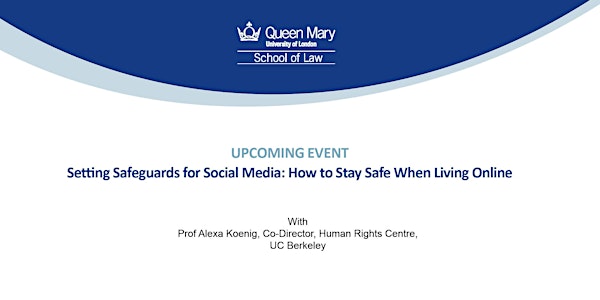When: Thursday, 9th May at 5pm - 7pm (followed by a drinks reception)
Where: Room 313, Third Floor, School of Law, Queen Mary University of London, Mile End Road, London E1 4NS
Format: In-person
About
None of us are strangers to graphic content. Today, almost anyone can upload and disseminate newsworthy information online. Yet this often leaves viewers exposed to posts that capture some of the worst things human beings can do to each other. This exposure can take a psychological toll, whether the content is viewed in a professional capacity (for example, by human rights investigators, investigative reporters, or content moderators) or a personal one. During this conversation, two pioneers of online investigation–Daragh Murray and Alexa Koenig–will draw from the latest social science research, original interviews, and their experiences running university-based investigation labs, to explore the safeguards people can put in place to mitigate the risks and maximize the benefits of time spent online.
Main speaker: Prof Alexa Koenig, Co-Director, Human Rights Centre, UC Berkeley
Speaker Bio
Alexa co-founded the Human Rights Center Investigations Lab(link is external), which trains students and professionals to use social media and other digital open source content to strengthen human rights research, reporting, and accountability. Alexa is a member of the American Association for the Advancement of Science’s Committee on Scientific Freedom and Responsibility, a member of the Technology Advisory Board for the Innovation Lab at Human Rights First, an advisory board member of Physicians for Human Rights, and a co-founder of the University of California Network on Human Rights Fact-Finding. She previously helped establish and co-chaired the Technology Advisory Board of the Office of the Prosecutor at the International Criminal Court; co-chaired the International Bar Association’s Human Rights Law Committee.
